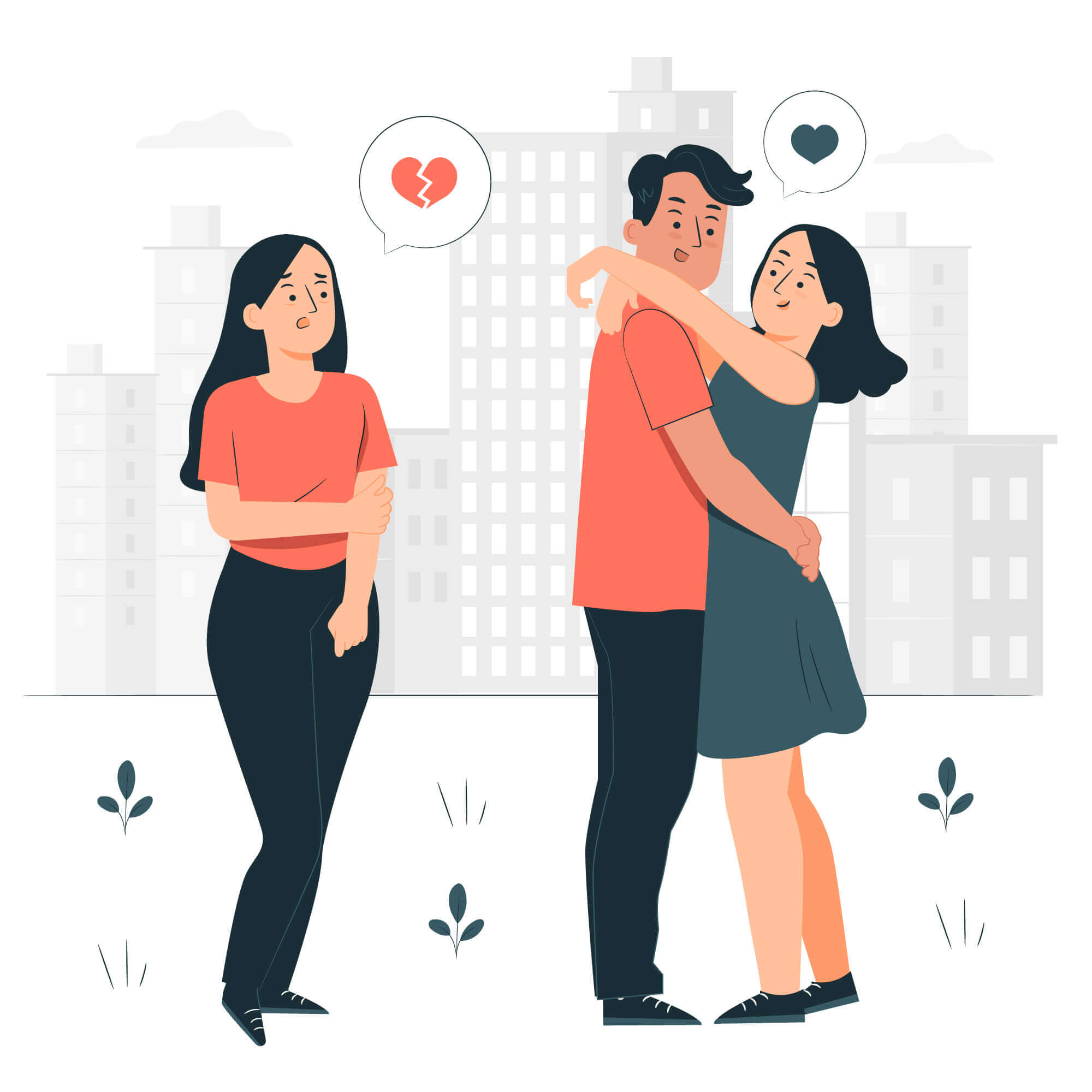Understanding Relationship OCD (Obsessive-Compulsive Disorder)
What Is Relationship OCD?
Relationship Obsessive-Compulsive Disorder (ROCD) is a subtype of obsessive-compulsive disorder (OCD) characterised by persistent, intrusive thoughts and compulsive behaviours related to romantic relationships.
Individuals with ROCD experience excessive doubts, fears, and preoccupations about their partner’s feelings, their level of attraction, or the overall validity of the relationship. These thoughts can be distressing and lead to compulsive reassurance-seeking, rumination, and avoidance behaviours that interfere with both personal well-being and the stability of the relationship.

Unlike usual relationship doubts, which can be rational and based on genuine concerns, ROCD-related thoughts are excessive and irrational and cause significant anxiety.
The compulsions that follow these obsessions can involve overanalyzing every aspect of the relationship, excessively questioning a partner’s love or commitment, or seeking constant validation from others.
Left untreated, ROCD can cause severe emotional distress and may lead to unnecessary breakups or chronic dissatisfaction in relationships.
Triggers for Relationship OCD

Various internal and external factors can trigger ROCD. Some individuals may experience ROCD due to a history of insecure attachment, childhood trauma, or previous relationship betrayals.
Others may develop symptoms as a result of anxiety disorders or perfectionistic tendencies.
Common triggers for ROCD
- Stress and Anxiety: High levels of stress or personal anxiety can amplify obsessive thoughts about a relationship.
- Social Media and Comparison: Constantly comparing one’s relationship to idealised depictions online can lead to doubts and dissatisfaction.
- Past Traumas or Unhealthy Relationships: Negative past experiences, such as infidelity or emotional abuse, may contribute to heightened fears and insecurities in new relationships.
- Fear of Commitment or Abandonment: Individuals with underlying fears of being abandoned or feeling trapped in a relationship may experience ROCD symptoms.
- Perfectionism: A tendency to seek perfection in all aspects of life, including relationships, can result in excessive doubts about whether one’s partner is “good enough.”
Recognizing these triggers can help individuals identify patterns in their thinking and take steps toward managing ROCD-related distress.
Types of Relationship OCD

ROCD manifests in different ways, but the two most common types include:
1. Relationship-Centered ROCD
This type of ROCD involves excessive doubts and preoccupations about the relationship itself.
Individuals may constantly question whether they truly love their partner, whether their partner loves them enough, or whether they are in the “right” relationship. This often leads to repeated cycles of analyzing feelings, comparing relationships, and seeking reassurance from others.
2. Partner-Focused ROCD

In this type of ROCD, the focus is on the partner’s perceived flaws. Individuals may fixate on their partner’s physical appearance, personality traits, or behaviour, worrying excessively that these perceived flaws make them incompatible.
Even minor imperfections can cause significant distress, leading to avoidance behaviours or feelings of guilt for staying in the relationship.
Both types of ROCD can exist simultaneously, causing overwhelming uncertainty and emotional exhaustion for those affected.
How ROCD Can Ruin Relationships

Relationship OCD has the potential to cause significant harm to relationships. Because individuals with ROCD struggle to trust their emotions and thoughts, they may engage in behaviours that erode the foundation of a healthy partnership.
Some of the ways ROCD can negatively impact relationships include:
- Constant Need for Reassurance: Seeking repeated validation from a partner about their love, commitment, or attraction can create frustration and emotional strain.
- Emotional Withdrawal: Individuals with ROCD may distance themselves from their partners due to overwhelming doubts and fears, leading to a lack of emotional intimacy.
- Unrealistic Relationship Expectations: ROCD sufferers may believe that love should always feel intense and perfect, leading to dissatisfaction when normal relationship fluctuations occur.
- Compulsive Checking and Comparing: Constantly comparing a relationship to others or revisiting past interactions to find evidence of compatibility can lead to feelings of discontent.
- Frequent Breakups and Regret: Some individuals may impulsively end relationships due to obsessive doubts, only to regret their decision later when intrusive thoughts subside.
Over time, these patterns can create frustration, misunderstandings, and emotional exhaustion, making it difficult for both partners to maintain a stable, fulfilling relationship.
Symptoms of Relationship OCD

The symptoms of ROCD vary but often involve obsessive doubts and compulsive behaviours that disrupt relationship satisfaction. Common symptoms include:
- Intrusive Thoughts: Recurrent, unwanted doubts about the relationship or partner.
- Compulsive Reassurance-Seeking: Constantly asking a partner or friends for confirmation that the relationship is good.
- Overanalysis: Excessively analyzing personal feelings, past experiences, or future uncertainties regarding the relationship.
- Avoidance Behaviours: Avoiding emotional closeness or specific situations that might trigger doubts.
- Guilt and Shame: Feeling guilty for doubting the relationship or believing that one should not have any doubts.
- Compulsive Checking: Frequently comparing the current relationship to past or others’ relationships.
- Emotional Distress: Feelings of anxiety, panic, or depression related to relationship thoughts.
If these symptoms persist and begin interfering with daily functioning or the quality of a relationship, professional intervention is highly recommended.
Make an Enquiry With Relationship Counsellor Lee Calleja
Seeking Counselling for Relationship OCD
Managing Relationship OCD requires a combination of self-awareness, cognitive restructuring, and professional support.
Through therapy, individuals can learn to challenge irrational fears, reduce compulsive behaviours, and develop healthier relationship patterns.

Mindfulness techniques can also help reduce overthinking and promote emotional regulation. Developing self-compassion, setting realistic relationship expectations, and learning to tolerate uncertainty are essential steps toward overcoming ROCD.
If you or someone you know is struggling with Relationship OCD, seeking professional support can provide valuable guidance and strategies for managing symptoms. Trusted relationship counsellor on the Gold Coast, Lee Calleja from Chirn Park Health Group, specialises in counselling for relationship-related anxiety.
Whether you prefer in-chair sessions at the Southport Clinic or online video consultations, you can receive expert support tailored to your needs. Reach out today to start your journey toward a healthier and more fulfilling relationship.









